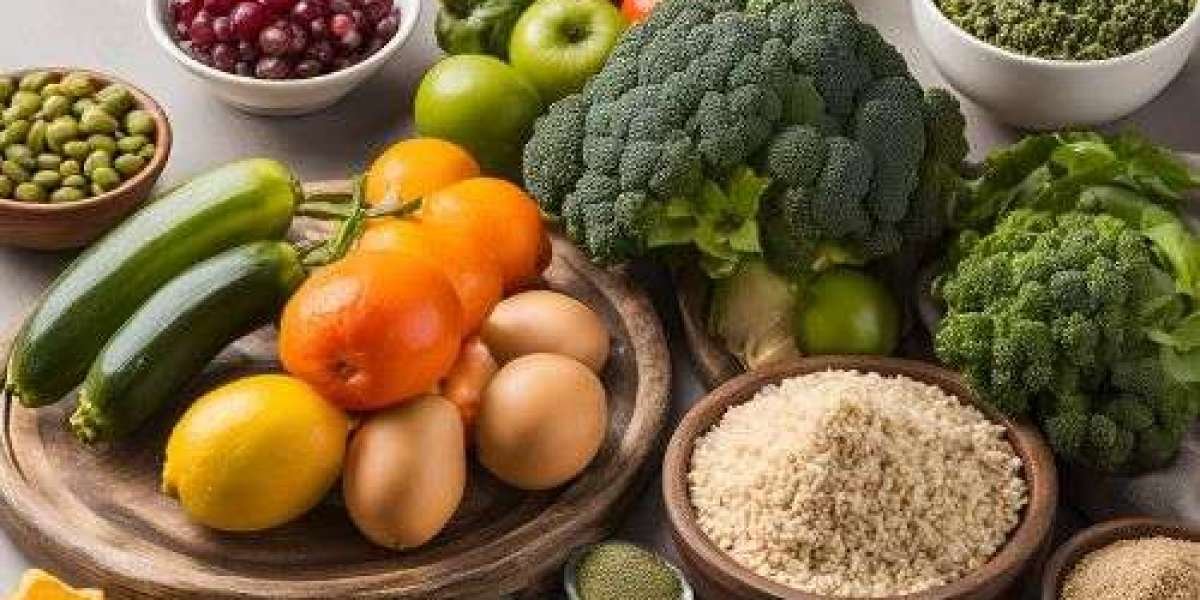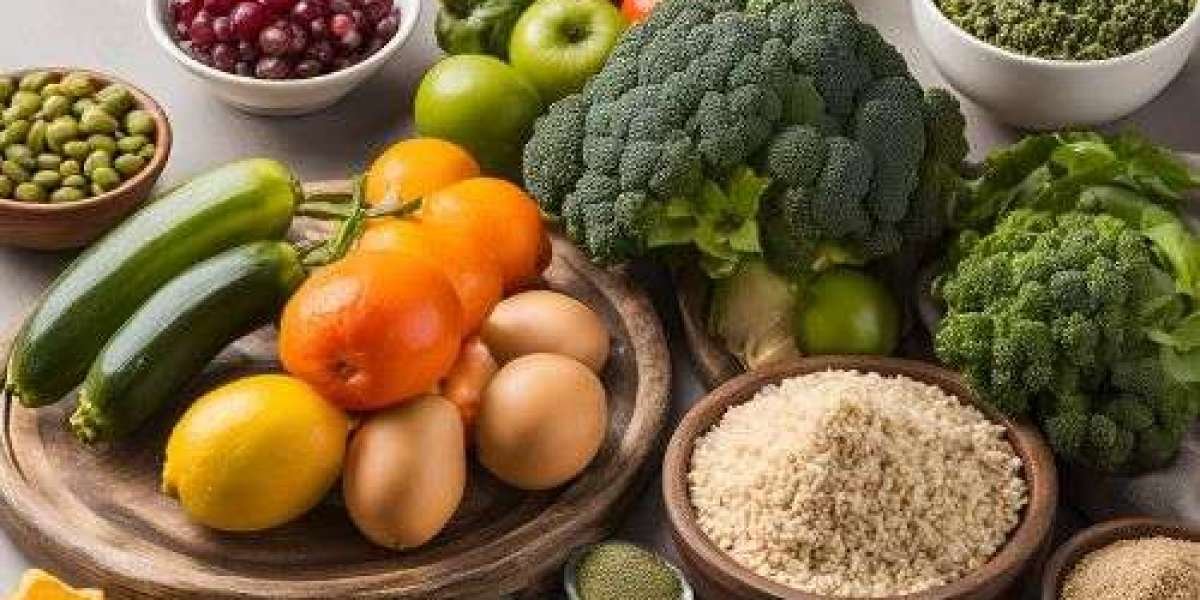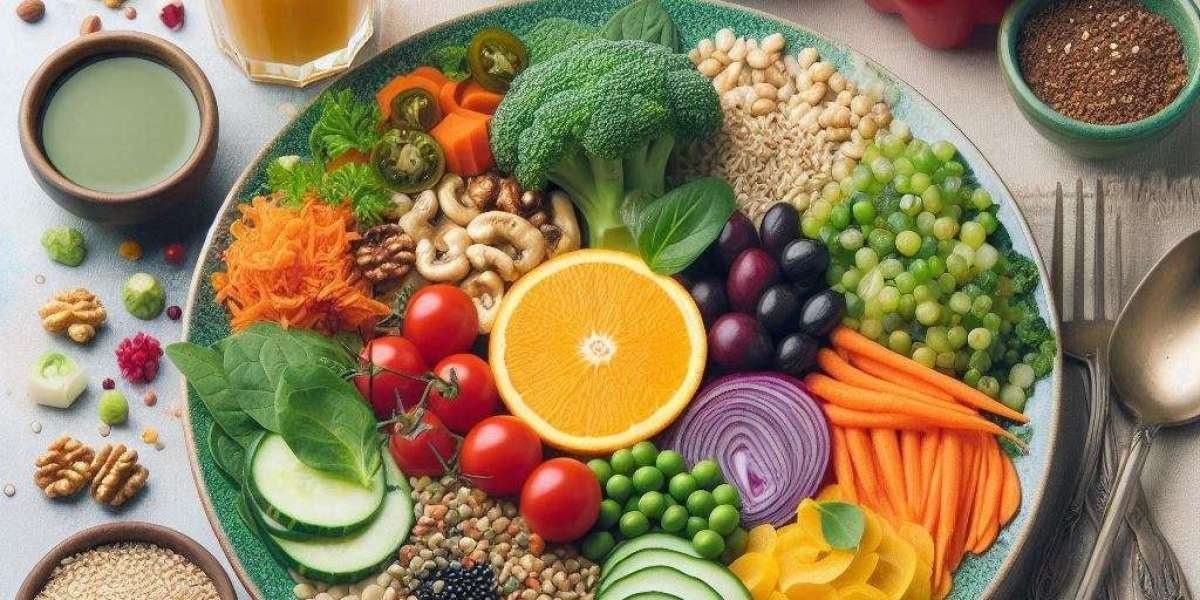Are you searching for a diet that not only nourishes your body but also aligns with your values of compassion and sustainability? Look no further than the Jain Diet - a time-tested way of eating that has been followed by Jain monks for centuries. In this ultimate guide, we will unlock the secrets of this wholesome and sustainable lifestyle, providing you with all the information you need to embark on your own journey towards optimal health and well-being. From understanding the principles of Ahimsa (non-violence) and Aparigraha (non-possession) to exploring the plant-based and cruelty-free nature of the Jain Diet, we will delve into the core philosophy and practices that make this dietary approach unique. Discover the benefits of incorporating more fruits, vegetables, grains, and legumes into your meals, while also learning about the potential challenges and how to overcome them. Whether you're a Jain yourself or simply curious about adopting a more compassionate and eco-friendly diet, this guide is your key to unlocking the secrets of the Jain Diet. Get ready to transform your lifestyle and embark on a path of holistic wellness.
Principles and philosophy behind the Jain diet
The Jain diet is rooted in the principles of Ahimsa and Aparigraha, which are central to Jainism. Ahimsa, meaning non-violence, is the cornerstone of the Jain way of life. Jains believe in causing the least harm to all living beings, including animals, insects, and plants. This principle extends to their dietary choices, making the Jain diet one of the most compassionate and ethical diets in the world. Aparigraha, meaning non-possession, emphasizes simplicity and detachment from material possessions. This principle is reflected in the Jain diet's focus on simplicity, minimalism, and moderation in food consumption.
The Jain diet is primarily plant-based, with a strong emphasis on fruits, vegetables, grains, and legumes. Jains avoid foods that involve violence or harm to living beings, such as meat, fish, eggs, and some root vegetables. This plant-based approach not only aligns with the principles of Ahimsa and Aparigraha but also offers numerous health benefits. By consuming a wide variety of plant-based foods, Jains ensure they receive a diverse array of essential nutrients, vitamins, and minerals necessary for optimal health and well-being.
The Jain diet also promotes mindful eating and moderation. Jains believe in eating in moderation, avoiding excesses that can lead to greed and attachment. They follow strict rules regarding the times and quantities of food consumed. Jains often practice fasting and limit their intake of certain foods on specific days of the week or during auspicious occasions. This mindful approach to eating helps maintain a balanced and harmonious relationship with food and promotes overall well-being.
Key components of the Jain diet
The Jain diet consists of several key components that contribute to its wholesome and sustainable nature. These components include:
1. Fruits and vegetables: Jains prioritize the consumption of fresh fruits and vegetables, which provide essential vitamins, minerals, and antioxidants. These plant-based foods form the foundation of the Jain diet, offering a wide range of flavors, textures, and nutritional benefits.
2. Grains and legumes: Whole grains, such as rice, wheat, and millets, along with legumes like lentils and beans, are important sources of protein, fiber, and complex carbohydrates in the Jain diet. These nutrient-rich foods are not only filling but also contribute to overall health and vitality.
3. Dairy products: Jains often include dairy products such as milk, yogurt, and cheese in their diet. However, it is important to note that some Jains may choose to follow a vegan lifestyle and avoid dairy products altogether.
4. Nuts and seeds: Nuts and seeds, including almonds, cashews, and sesame seeds, are valued for their nutritional content and are often included in Jain meals. These provide healthy fats, protein, and essential minerals, adding flavor and texture to dishes.
5. Spices and herbs: The Jain diet incorporates a variety of spices and herbs, such as turmeric, cumin, coriander, and ginger, to enhance the flavors of meals. These aromatic ingredients not only add depth to dishes but also offer health benefits, including anti-inflammatory and digestive properties.
Foods allowed in the Jain diet
The Jain diet primarily consists of plant-based foods, emphasizing the consumption of fruits, vegetables, grains, and legumes. Here are some examples of foods allowed in the Jain diet:
- Fruits: Apples, bananas, oranges, mangoes, grapes, pomegranates, and more.
- Vegetables: Leafy greens, carrots, tomatoes, cucumbers, bell peppers, cauliflower, and others.
- Grains: Rice, wheat, barley, millets, oats, and more.
- Legumes: Lentils, chickpeas, beans, peas, and others.
- Dairy products (optional, based on individual choice): Milk, yogurt, cheese, ghee (clarified butter), and paneer (cottage cheese).
- Nuts and seeds: Almonds, cashews, walnuts, sesame seeds, flaxseeds, and more.
It is worth noting that Jains often prefer organic and locally sourced produce, as they believe in supporting sustainable and environmentally friendly practices. Additionally, Jains may also incorporate certain Jain-friendly spices and herbs into their meals to enhance the flavors and medicinal properties.
Foods to avoid in the Jain diet
As the Jain diet revolves around the principles of Ahimsa and Aparigraha, there are certain foods that Jains avoid. These include:
- Meat and fish: Jains strictly abstain from consuming any form of meat, including poultry, seafood, and red meat. This is primarily due to the violence involved in animal slaughter and the belief in causing the least harm to living beings.
- Eggs: Jains refrain from eating eggs as they are considered a product of violence, as they involve the potential harm to unborn animals.
- Root vegetables: Some Jains avoid root vegetables like onions, potatoes, garlic, and ginger, as they believe that uprooting these plants can cause harm to the entire plant.
- Honey: While honey is a natural product, Jains often choose to avoid it due to concerns about the well-being of bees and the potential harm caused during the extraction process.
It is important to note that the level of strictness in following these dietary restrictions may vary among individuals and communities within the Jain faith. Some Jains may choose to follow a more lenient approach, while others adhere to a stricter interpretation of the diet.
Benefits of following the Jain diet
The Jain diet offers numerous benefits for both physical and spiritual well-being. Here are some of the key advantages of following this wholesome and sustainable lifestyle:
1. Improved health: The Jain diet, rich in fruits, vegetables, grains, and legumes, provides a wide range of essential nutrients, vitamins, and minerals necessary for optimal health. This plant-based approach is associated with a reduced risk of chronic diseases such as heart disease, diabetes, and certain types of cancer.
2. Weight management: The Jain diet, with its emphasis on whole foods and portion control, can support healthy weight management. The abundance of fiber and low-calorie options in the diet helps promote satiety and prevents overeating.
3. Mental clarity and focus: The Jain diet, free from heavy and processed foods, promotes mental clarity and focus. The consumption of fresh, nutrient-dense foods nourishes the brain and enhances cognitive function.
4. Environmental sustainability: By following a plant-based diet, Jains contribute to reducing their carbon footprint and promoting environmental sustainability. Plant-based diets require fewer resources, such as land, water, and energy, compared to animal-based diets, making them more eco-friendly.
5. Compassion and ethical living: The Jain diet aligns with the principles of Ahimsa and Aparigraha, promoting compassion, non-violence, and ethical living. By choosing foods that do not involve harm to living beings, Jains demonstrate their commitment to a more compassionate and responsible lifestyle.
Meal planning and recipes for the Jain diet
Meal planning on the Jain diet involves creating balanced, nutritious, and delicious meals that adhere to the dietary restrictions. Here are some tips to help you plan your Jain meals:
1. Focus on variety: Incorporate a wide range of fruits, vegetables, grains, and legumes to ensure you receive a diverse array of nutrients. Experiment with different flavors, textures, and cooking methods to keep your meals interesting and enjoyable.
2. Prioritize whole foods: Opt for whole grains, such as brown rice and whole wheat bread, over refined grains. Choose fresh and seasonal fruits and vegetables to maximize their nutritional value.
3. Include plant-based protein sources: Legumes, such as lentils, chickpeas, and beans, are excellent sources of protein for the Jain diet. Include them in your meals to ensure you meet your daily protein requirements.
4. Experiment with Jain-friendly spices and herbs: Incorporate spices like turmeric, cumin, coriander, and ginger into your meals to add flavor and enhance the nutritional value. These spices also offer various health benefits, including anti-inflammatory properties.
5. Stay hydrated: Drink an adequate amount of water throughout the day to stay hydrated. You can also include herbal teas, coconut water, and fresh fruit juices in your diet for added hydration.
To get you started on your Jain culinary journey, here are a few Jain-friendly recipes:
1. Jain Dal Makhani: A creamy and flavorful lentil dish made with black lentils, tomatoes, and aromatic spices. Serve it with rice or roti for a hearty meal.
2. Vegetable Biryani: Fragrant basmati rice cooked with an assortment of vegetables, herbs, and spices. This one-pot dish is a perfect balance of flavors and textures.
3. Palak Paneer: A classic Indian dish made with spinach and cottage cheese. This nutritious and delicious recipe is a great way to incorporate leafy greens into your diet.
4. Fruit Chaat: A refreshing and tangy fruit salad made with a variety of seasonal fruits, sprinkled with chaat masala and a squeeze of lemon juice.
Remember, these are just a few examples, and the possibilities are endless when it comes to Jain cuisine. Feel free to explore and experiment with different ingredients and flavors to create your own Jain-friendly recipes.
Jain diet and sustainability
The Jain diet's focus on plant-based foods and minimal harm to living beings makes it inherently sustainable. By choosing a diet that requires fewer resources and does not contribute to the exploitation of animals, Jains actively participate in sustainable living. Plant-based diets have been shown to have a lower environmental impact, including reduced greenhouse gas emissions, land use, and water consumption.
In addition to the environmental benefits, the Jain diet promotes sustainable farming practices. Jains often prioritize organic and locally sourced produce, supporting farmers who follow sustainable and eco-friendly agricultural methods. By consuming seasonal and locally grown foods, Jains reduce the carbon footprint associated with transportation and support local economies.
Challenges and tips for adopting the Jain diet
While the Jain diet offers numerous benefits, it may present some challenges, especially for those transitioning from a non-vegetarian or non-vegan diet. Here are some common challenges and tips to overcome them:
1. Protein intake: As a plant-based diet, the Jain diet requires careful consideration to ensure an adequate intake of protein. Include a variety of legumes, nuts, and seeds in your meals to meet your protein requirements. You may also consider consulting a registered dietitian or nutritionist for personalized guidance.
2. Nutritional balance: Ensure you receive a balanced intake of essential nutrients by incorporating a variety of fruits, vegetables, grains, and legumes in your diet. Focus on eating a rainbow of colors to ensure a diverse range of nutrients.
3. Eating out and social situations: Eating out or attending social gatherings may pose challenges when following the Jain diet. Research and choose restaurants that offer Jain-friendly options, or consider carrying your own meals for such occasions. Communicate your dietary restrictions to friends and family so they can accommodate your needs.
4. Planning and preparation: Meal planning and preparation are essential for success on the Jain diet. Set aside time each week to plan your meals, grocery shop, and prepare ingredients in advance. This will help you stay organized and make healthier choices throughout the week.
5. Seek support and community: Joining Jain communities or online forums can provide support, inspiration, and recipe ideas. Connecting with others who follow the Jain diet can help you stay motivated and share experiences and tips.
The Jain diet offers a unique approach to nourishing the body while aligning with the principles of compassion and sustainability. By understanding the principles and philosophy behind the Jain diet, exploring the key components of the diet, and learning about the foods to include and avoid, you can embark on a journey towards optimal health and well-being. The Jain diet's plant-based nature, emphasis on moderation and mindfulness, and focus on ethical living make it a holistic and sustainable lifestyle choice.
Through meal planning, recipe exploration, and embracing the Jain diet's principles, you can transform your lifestyle and experience the numerous benefits it offers. From improved health and weight management to mental clarity and a reduced environmental impact, the Jain diet has the potential to positively impact your life and the world around you. Start your Jain culinary adventure today and unlock the secrets of this wholesome and sustainable lifestyle.





